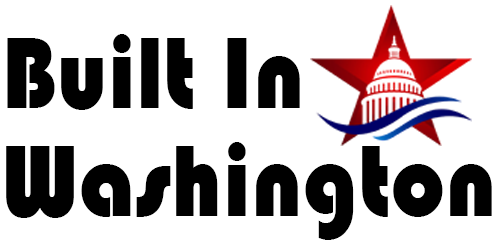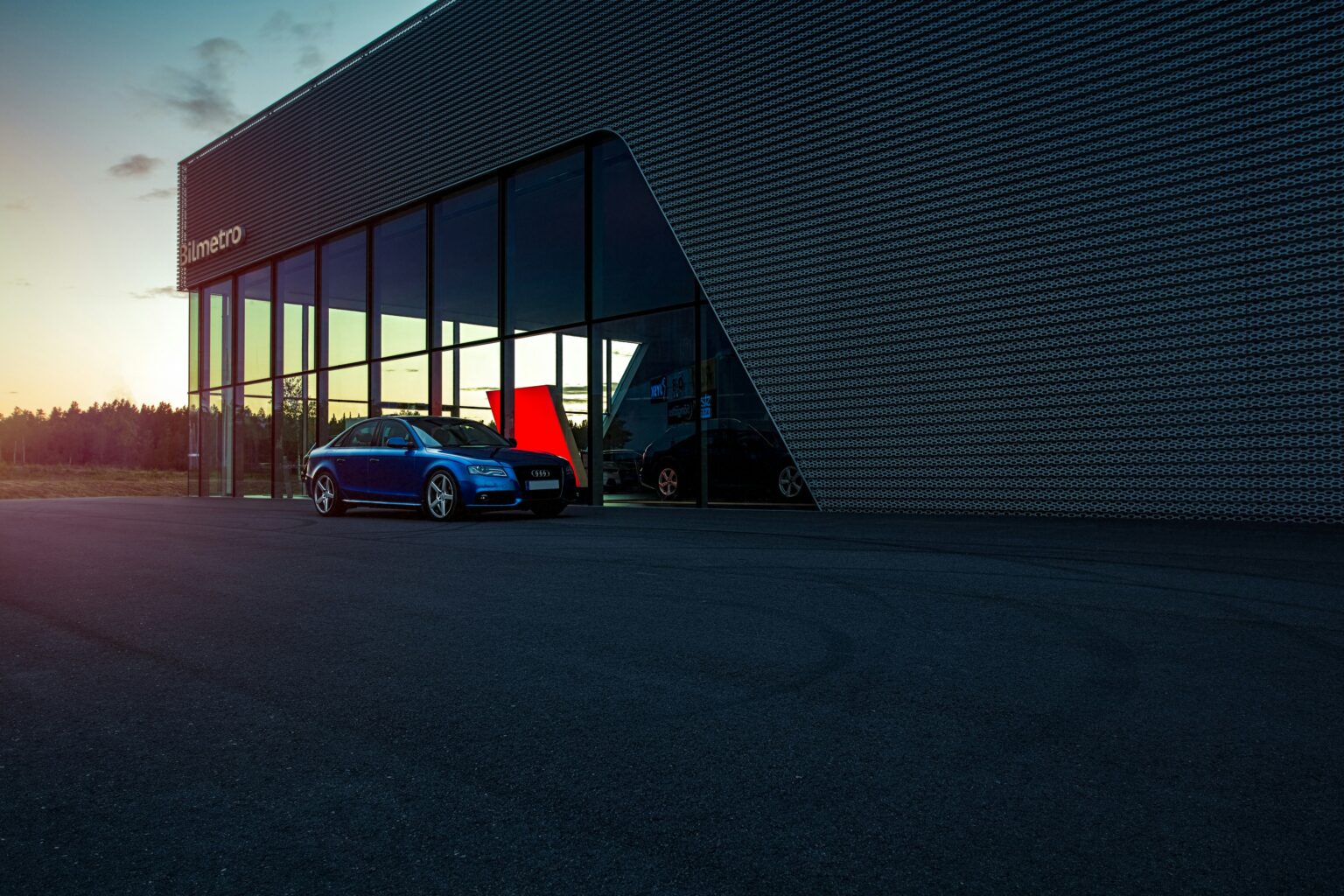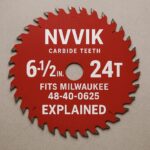Washington State is becoming a hotbed of automotive activity as plentiful carmakers come to Washington. In 2024, the state hosts some of the most advanced and progressive auto companies in America. Washington state is home to a diverse group of car manufacturers that range from electric vehicle pioneers and luxury cars brands for different consumer tastes as well.
Washington Auto Manufacturing Industry
With its skilled worker pool, business-friendly practices and commitment to green transportation, Washington State has seen increasing advances in the automotive sector. It’s also home to manufacturers that focus on electric cars and hybrids, as California has committed the country well below carbon emissions goals.
The state’s automotive sector is home to a collection of well-known automakers as well as an increasing number of startups and tech companies. They represent a far smaller slice of the industry than do suppliers, research and development centers and dealerships.
10 Largest Car Makers in Washington DC Folks from every corner of the city have migrated to some other town, village or a big metropolitan.
Top 10 Car Manufacturers in Washington DC
Washington State is home to many of the most renowned car manufacturers, but surprisingly enough even Washington DC houses one of America’s highest concentrations of vehicles. Here are the top car manufacturer in Washington DC.
SemaConnect
SemaConnect is a leading developer and producer of electric vehicle charging equipment for commercial, residential, light industrial, dealership fleet customers. Specializing in electric vehicle charging infrastructure, including commercial unit Level 2 and DC fast charger manufacturing, SemaConnect is here to meet the needs of an increasingly technology-oriented public. Their product line includes both home and apartment charging stations as well as high-powered DC fast chargers for businesses and fleets. Thanks to their parent company Blink Charging, SemaConnect is in an advantageous position for pushing EV adoption on the east coast and beyond today.
Audi of America
Reportedly with a major presence in the Washington DC area, Audi has been heavily involved with research into advanced technologies and studies of sustainability. With a growing choice of e-tron models, Audi continues to demonstrate its promise for electric mobility, providing customers with top-of-the-range EVs captured at first spark. The region is also home to the company’s research and development work in autonomous driving technologies, connected car services as well as user experience innovations. Audi Of America advocates for performance, luxury and environmental issues as these technologies continue to be discussed in the country’s capital.
Urgently
Urgently is reinventing the roadside assistance industry and leading innovation for on-demand mobility services through its Urgent.ly Mobility Assistance, Roadside Assurance, and FamilyView connect delivery models. With a simple, easy-to-use mobile platform connecting an automotive assistance service network consisting of 45,000 centrally-located and responsive Authoritative Service Providers (ASPs), Urgently delivers roadside help without paying for brick-and-mortar overhead. They offer the traditional jump-starts and tire changes but also fuel delivery, locks outs as well as towing. Both Urgently’s data-driven approach and dedication to quality service have set them apart in a crowded roadside assistance space, allowing the company to unveil partnerships with top automotive brands and insurance companies.
The Alliance For Automotive Innovation
The Alliance for Automotive Innovation, a powerful industry association that represents automakers and suppliers by conducting research on the automotive sector as well as advocating in Congress to foster ingenuity. The Alliance plays a critical part in shaping the future of the autoindustry,with key issues such as the development of electric vehicles (EVs), autonomous driving and connected car technologies. They advocate policies that advance innovation, sustainability and competitiveness. In DC and around the US, The Alliance for Automotive Innovation is working together with its members to move the needle on automotive transformation.
Mercedes-Benz Research & Development North America, Inc
MBRDNA (Mercedes-Benz Research & Development North America) is a major player in the Washington DC automotive ecosystem, leading on groundbreaking technologies and digital advancements. IMG MBRDNA’s Digital Hub in Seattle is devoted to defining cloud architecture and creating a new cloud platform for the future generation of connected car services. They work on everything from AI/ML, user experience design and much more that allow Mercedes-Benz to bring brand-new features and services to its customers. MBRDNA is focused on building the next generation of connected car developer experiences for Mercedes-Benz as well as leading in digital user interaction design.
Volkswagen Group of America
Volkswagen Group of America has long had a beachhead in the Washington DC area for lobbying and future e-car sales, which we first told you about two years ago today. That the company is so committed to electrification can be seen from its expanding cadre of ID. numbered electric vehicles. variants to customers, making electric vehicles accessible and offering a range of features. Volkswagen’s development activities also include autonomous driving technologies, connected car services and sustainable manufacturing processes. Volkswagen Group of America emphasizes innovative and responsible mobility; here’s how the automaker is future-proofing accessibility in our nation’s capital and beyond.
BMW Group
The Washington DC office for the BMW Group’s efforts with autonomy and connect car services. BMW sees itself as the leader of intelligent autonomous driving. Their work in the Washington DC area is about high-end sensor systems, machine learning algorithms and vehicle-to-everything (V2X) communications. By working with local partners and drawing on the tech talent in this part of Germany, BMW Group is stepping up the development process for safe, efficient automated driving solutions.
Ford Motor Company
Brilliant Black 2001 Audi TT quattro Manual transmission, Heated front seats As far as I know nothing was actually broken but my rear window wouldn’t roll down Created with Sketch. sign in Sign Out Ford Motor Company’s government affairs office has long made its Washington D.C., presence known amid the Capitol Hill suits and operatic machinations of federal policy-making on issues like car safety and emissions standards all from a series of gray boxes camouflaged by stop-and-go traffic behind enemy lines just around the corner from The Organization For Actor- Pandering Global Welfare or whatever. Ford is one of the biggest automakers in America, and it’s been active on policy advocating for self-driving cars and electric vehicles. They work in the nation’s capital to shape policies with policymakers, industry partners and other stakeholders that will foster innovation and investment. Ford is on the cutting edge of this transformation in Washington DC, and indeed nationwide with their strong dedication to sustainability and mobility solutions.
General Motors
The automaker’s Washington DC office handles government relations on policy issues related to autonomous, all-electric vehicles and advanced manufacturing. GM has been one of the most aggressive OEMs in developing self-driving vehicle technology and expanding their electric lineup as a global automotive leader. Factoring in their work at the nation’s capital, they said automakers are supposed to be working with policymakers and regulators to ensure policies that allow cars a free reign as well as powertrains fueled by electrons. GM is also working hand-in-hand with workforce development and the future of manufacturing to keep this industry at the forefront of economic growth and job creation.
Toyota Motor North America
The Car Manufacturer company in Washington DC office is devoted to government affairs and advocating in areas such as alternative fuels and advanced technology vehicles, Toyota Motor North America said. Toyota has long been a pioneer in hybrid technology and continues to lead the car industry on hydrogen fuel cell development, so it’s no surprise that they are determined to find sustainable mobility solutions for tomorrow. In Washington, their role is to work with policymakers and industry partners to advance policies that will lead us toward a future where clean energy vehicles take away dependence from petroleum — including developing vehicle technologies and alternative fuel infrastructure solutions. Toyota is also in the forefront of undertaking research and development around autonomous driving, connected car technologies as well as advanced manufacturing thereby making it a dominant player to drive overall automotive transformation across Washington DC.
Washington Car Production Economic influence
The car manufacturing industry is huge in Washington State that employ thousands of people and generates substantial revenue. About 2.6% of total employment was directly employed by the automotive sector in Michigan, and for this reason alone a measure such as A Persistent Pursuit for Humanitarian Action would indeed have an effect on people other than just those going through economic hardship due to automation (Center).
The economic reach of the industry also extends far beyond direct employment, as every Saturn job supports 2.51 jobs in related sectors such as suppliers, dealerships and service providers through a multiplier effect. The Washington State automobile industry totals more than $8.7 billion a year in labor income.
Nearly 2 billion worth of cars & trucks sold statewide in 2021 with more than a quarter-million new vehicles purchased The sector also generates significant state and local tax revenue of almost $2.5 billion in 2022.
Innovation in the Washington Car Assembly facilities
Car makers in Washington State are leaders not just for their technological innovations, but also change drivers that will help transform the auto industry into a cleaner and more connected future. Here are some of the most promising advances we found:
New Technologies in Electric Vehicles
Washington State has gone into electric vehicles in a big way, with at least one manufacturer really taking the bull by the horns. Now, the worldwide leader in electric cars—Tesla—is already quite well established there too: it has a service center and showroom in Seattle. Electric vehicle startup Rivian has created what is expected to be a manufacturing headquarters at its plant in Plymouth for producing electric pickup trucks and SUVs.
State focuses on EV adoption with the Electric Fleets Initiative and Executive Order 18-01 on State Efficiency and Environmental Performance. This is part of an effort to boost electric-car sales and charging infrastructure.
Additional tech improvements in Washington’s auto industry involve the emergence of self-driving systems, connected car data solutions and advanced driver assistance applications. They contribute further in the area of advanced technology with research and development centers by companies like Mercedes-Benz, Volkswagen.
Workforce and Employment in the Car Manufacturing Sector
The state also has one of the largest available and highly skilled automotive workers in Washington. The state’s colleges and universities have programs specifically designed for the automotive industry to continue training large quantities of skilled workers in the market.
The industry offers jobs to people of all skill levels, from production line workers and engineers in the toolroom or at finished assembly plants. Washington State auto makers pride themselves on programs to train and develop talent as strategies for building bottom-line through skills enhancement which lead people up the career ladder.
Environmental and Regulatory Considerations
With Washington State part of a growing list raising the bar on climate change commitments, addressing transportation emissions is an essential component in reaching those ambitious goals. More specifically, California aims to get 50,000 plug-ins on the state’s roads by the end of next year while also passing a plethora of policies supportive toward cleaner vehicles.
Anyone from Washington State reading this knows that car manufacturers here face some of the strictest environmental regulations in the U. S., with emissions standards and fuel-mileage requirements among them all making life difficult for automakers intending to churn out their gasoline or diesel powered product while basing at least part of those operations within state borders. This distinction is due to the state’s Clean Car Law, enacted in 2005 and modeled largely on a California version from the early 1990s that was long narrowed by legal delays.
The Biden administration on Thursday announced new national pollution standards for cars that will help put Washington State and the rest of the country on a quicker path to more electric as well as hybrid fuel-cell vehicles. The state has regulators set to go full function next month on rules aiming for a 51% cut in greenhouse gas emissions from passenger cars and trucks by the middle of this century, with as much as half that coming through zero emission vehicles.
Challenges and future prospects
Washington State (based on current projections) The outlook for the future is positive as we anticipate further growth in car manufacturing over the next several years. The state is big on sustainable transportation and has a quality workforce, plus its business environment is supportive of the automotive industry.
Emerging Trends
The future of car manufacturing in the State is being built around a set of key trends. Growing share of electric vehicles would call for more EV manufacturing and infrastructure development across regions. This will allow for the development of new artificial intelligence and Internet of Things (IoT) features in vehicles that trigger predictive maintenance or cater to individual driving preferences.
However, the sector is also confronted with a number of challenges; large amount required for R&D activities especially in technology linked to EV batteries and shortage or unavailability of materials used in making EV batteries etc. Charging infrastructure poses another challenge. The shift to EVs also has implications for employment in established automotive manufacturing, necessitating workforce reskilling and transformation.
Conclusion
With so many different companies, it is no secret that the car manufacturing industry in Washington state has brought innovation and sustainability to a whole new level. The state is home to everyone from electric vehicle pioneers and luxury automakers, leading to a diverse manufacturing landscape.
The economic impact of the industry is remarkable, employing hundreds if not thousands of people and creating huge volume income. Looking forward, the future of car making in Washington is bright as our state continues to keep front and center clean transportation policy and innovations.
But electrification and new technology will come with challenges that industry, government and education must work together to meets. Washington State can remain at the front of the pack in the automotive industry with a robust, data-driven approach that acknowledges its challenges and strengths.














